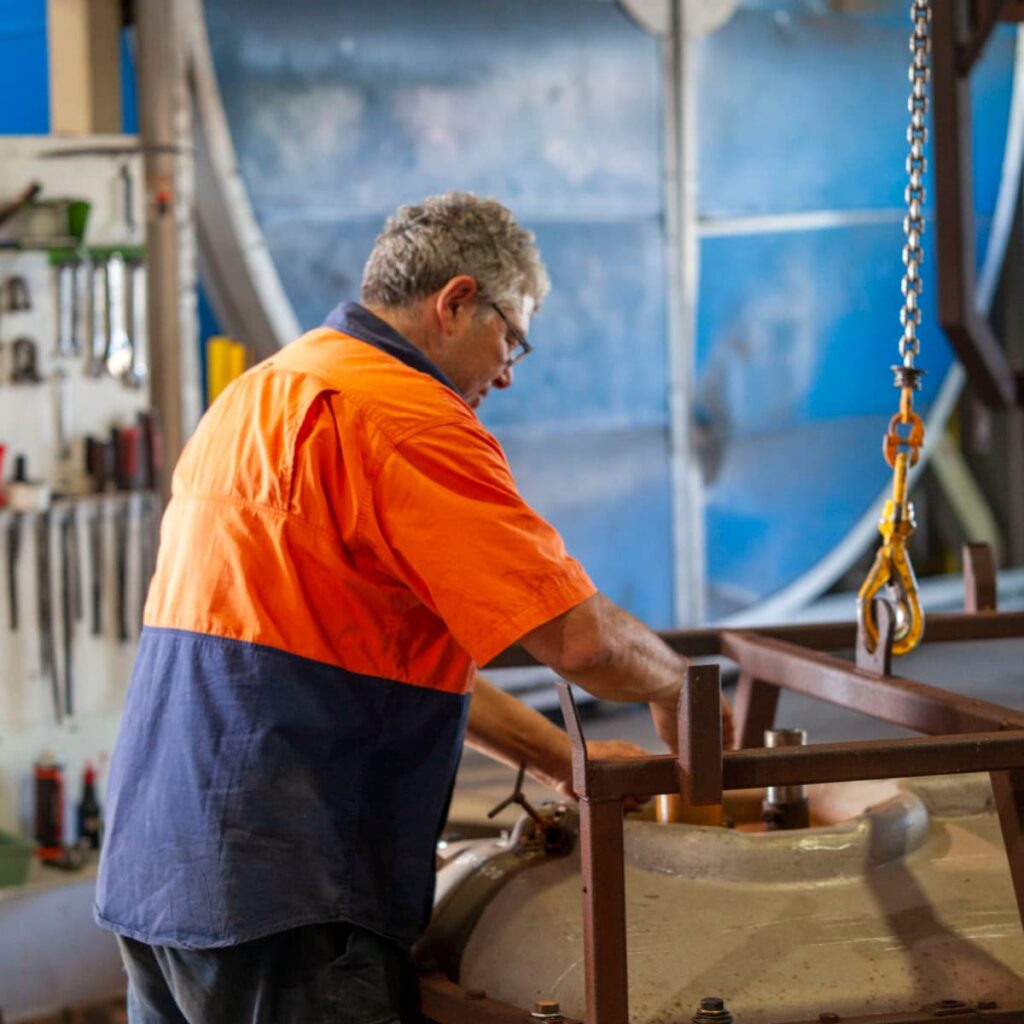Women in Rural Agriculture
Home / Women in Rural Agriculture
- globaltanks
- April 16, 2020
- 3 minutes
Global Tanks are committed to the environment, your health and safety, as well as the principle of equal opportunities in education, employment and welfare for staff. This commitment means a lot to us as a brand, as it is something we strive to do every day. We understand the utmost importance of having a diverse work culture in order to be the best we can be and continue to innovate. To do that, the recognition of women in rural agriculture is something we’re very passionate about.
The Invisible Farmers
Women make up approximately 32% of the Australian agriculture workforce according to the latest census data and globally, they represent half of the entire agriculture industry. Yet, commonly when someone thinks of the ‘typical’ farmer, let alone google’s ‘Australian farmer’ in 2020, hundreds of images of male farmers will appear.
It was as recent as the mid-1990s that women in agriculture were even legally recognised with the title of being farmers, thanks to the ‘Women in Agriculture’ movement. It was formulated by a collaboration of informally linked organisations, communities, activists and professionals who banded together to highlight the lack of recognition for such a large part of the industry. This was HUGE, as before then, female farmers were defined as silent partners, domestics, helpmates and farmer’s wives. It transformed how these invisible farmers were now going to be perceived and celebrated in the industry, and after decades of hard work, resilience and most importantly – a tonne of patience.
Fast forward to the years following, momentum essentially plateaued in terms of fostering the further progression of the demographic. While now a social norm for women to be considered farmers amongst local communities, friends and family – on official organisational boards and politically, women are still not recognised in a way that reflects the vast total percentage they make up of the industry. For instance, women as CEOs in Australian agriculture businesses only make up 2.3%, with an average of 17% across other sectors, even though they have an average incidence of university education that is double to men.
It’s more important now than ever to ensure that women are included at the table they painstakingly provide for in the agriculture industry. Globally the industry as a whole is underperforming, even though it is essential for economic growth and stability in food sourcing.
It’s more important now than ever to ensure that women are included at the table they painstakingly provide for in the agriculture industry. Globally the industry as a whole is underperforming, even though it is essential for economic growth and stability in food sourcing.
The Future is Bright
It’s not all doom and gloom though; it’s important to note the progress that has been made in the last few years. In 2014, The National Farmers Federation (NFF) only had one female as an official on the board, and now they have 4 – including one of them as now the president of the federation. Being one of the biggest boards in terms of overseeing many influential members of the industry, the trickle-down effect on other organisations to follow suit is promising.
The percentage of people studying agriculture science is made up of 55% women and 45% men – this speaks volumes as to how significantly women are not going anywhere in this industry. Empowering women in farming is essential, for not only gender equality but also for the economic growth mindset too.
To quote Charles Sturt University’s Professor, Jim Pratley: “The fundamental drivers of sustainability and economic growth are people. If only one gender is encouraged to participate, the talent pool is halved. A diverse workforce tends to produce a more holistic analysis of issues an organisation faces, leading to greater motivation and improved decision making.”
Overall, if continued in this trajectory, the industry perception will begin to break down the stereotypical image of a ‘typical’ farmer and make way for the young, determined, educated female farmer who increases not only profitability but also the diversity in agriculture.
Global Tanks supports women in agriculture and cannot wait to see the hard work that these powerful ladies have contributed to being recognised.

